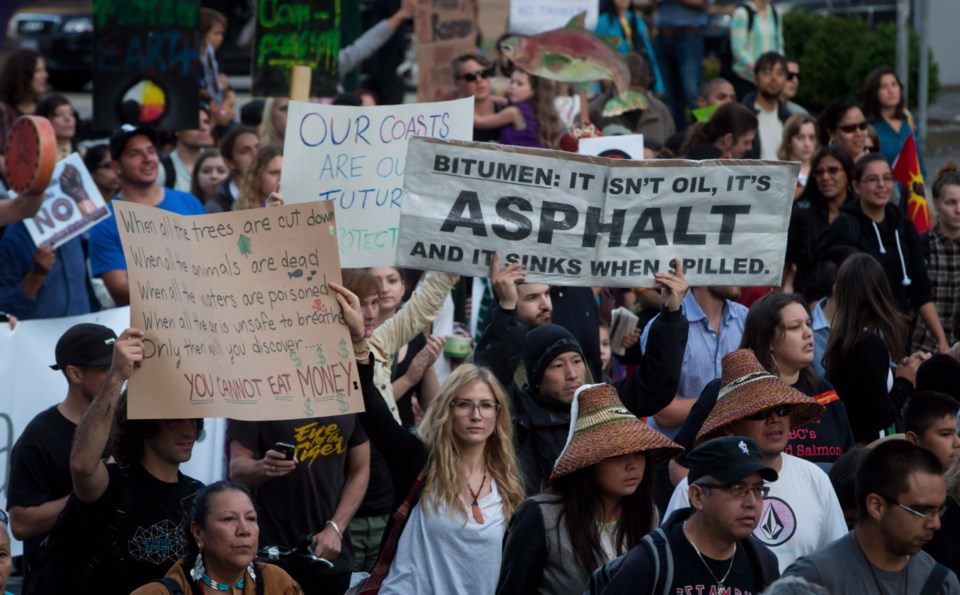 Political lobbying by the Canadian Cancer Society resulted in public-smoking bans. The “political” agitation of the Mothers Against Drunk Driving forced lawmakers to get serious about that cause, too.
Political lobbying by the Canadian Cancer Society resulted in public-smoking bans. The “political” agitation of the Mothers Against Drunk Driving forced lawmakers to get serious about that cause, too.
Same goes for the cleanup of the Great Lakes, the end of leaded gasoline and — a local favourite — the banning of pulp mill dioxins. “If you can eat the crabs in Cowichan Bay today, you can thank the political activities of environmental groups,” Calvin Sandborn says.
But if those groups lobbied like that today, they would risk being destroyed by the federal crackdown on political activity by Canadian charities, a campaign that has some non-profits terrified to raise their voices above a whimper, says Sandborn.
So it’s not just charities who lose as the tax police are unleashed. It’s all of us. “If you muzzle the charitable sector, society will suffer in the long run.”
Sandborn is legal director of UVic’s Environmental Law Centre, which has just released a 62-page paper calling for reforms that would let charities do more policy advocacy without risking their charity status. The reforms, which the paper says would bring Canadian law in line with that of the U.S., Britain and Australia, would also make it harder for politicians to use tax laws to bludgeon their enemies.
As it is, the rules on what constitutes “political activity” are so ambiguous and the penalties so harsh (charities can lose their status and be stripped of assets) that a chill has set in, says the paper. The law centre’s analysis was prepared for the online news outlet DeSmog Canada (which, while a registered non-profit society, is not a charity).
This all goes back to 2012, when the Conservatives went against their own budget-slashing trend and allocated $8 million to audit charities’ political activities.
The Conservatives deny the audits were politically motivated, but it’s hard to ignore that this happened at the same time the politicians were grumbling in frustration about “radical” environmentalists bogging down the Northern Gateway pipeline-approval process.
Since then, the budget has grown to $13.4 million and the Canada Revenue Agency has audited more than 50 of Canada’s 86,000 registered charities.
Those in the crosshairs have included not only seven high-profile green groups such as the David Suzuki Foundation, Tides Canada and West Coast Environmental Law, but the left-leaning likes of Amnesty International Canada, the United Church’s Kairos charity and Pen Canada (ironically, an authors’ organization dedicated to freedom of expression).
“Although most groups audited so far have been found without fault, an audit is an intimidating, time-consuming, costly and resource-intensive process that all want to avoid,” the paper said.
So non-profits strive to stay within rules that prohibit them from spending more than 10 per cent of their revenue on work defined as being political.
“There are a lot of environmental groups that are petrified of saying anything,” Sandborn says.
The Conservatives deny having anything to do with choosing which charities get audited, but if the politicians didn’t actually pull the trigger, they certainly bought the gun, loaded it and left it on the table for their friends to pick up. It might be a complaint-driven process, but some of the complaining has been done by Conservative allies like the pro-oilsands Ethical Oil. The UVic report cites allegations that staff moved back and forth between Ethical Oil, the Prime Minister’s Office and the office of cabinet minister Jason Kenney.
No matter who is pulling the strings, the effect is the same.
“This paper reaches no final conclusions about whether government has actually directed audits at its critics,” the UVic analysis says.
“The important thing is that the audits themselves — and the mere perception that they may be targeted — are clearly silencing charities that have much to offer society.
“This situation raises crucial policy issues and highlights the need to reform Canadian charity law to: eliminate the potential for political targeting of audits, to clarify the rules governing charities’ political activities, and to give due recognition to the important beneficial role charities play when they advocate legal and social reform to advance their charitable purposes.”
In other words, where would we be had the cancer society been afraid to ask for workplace smoking bans, or MADD been worried about whether its opposition to existing drunk-driving laws would be deemed too political?
Read the full UVic Environmental Law Clinic paper here:



